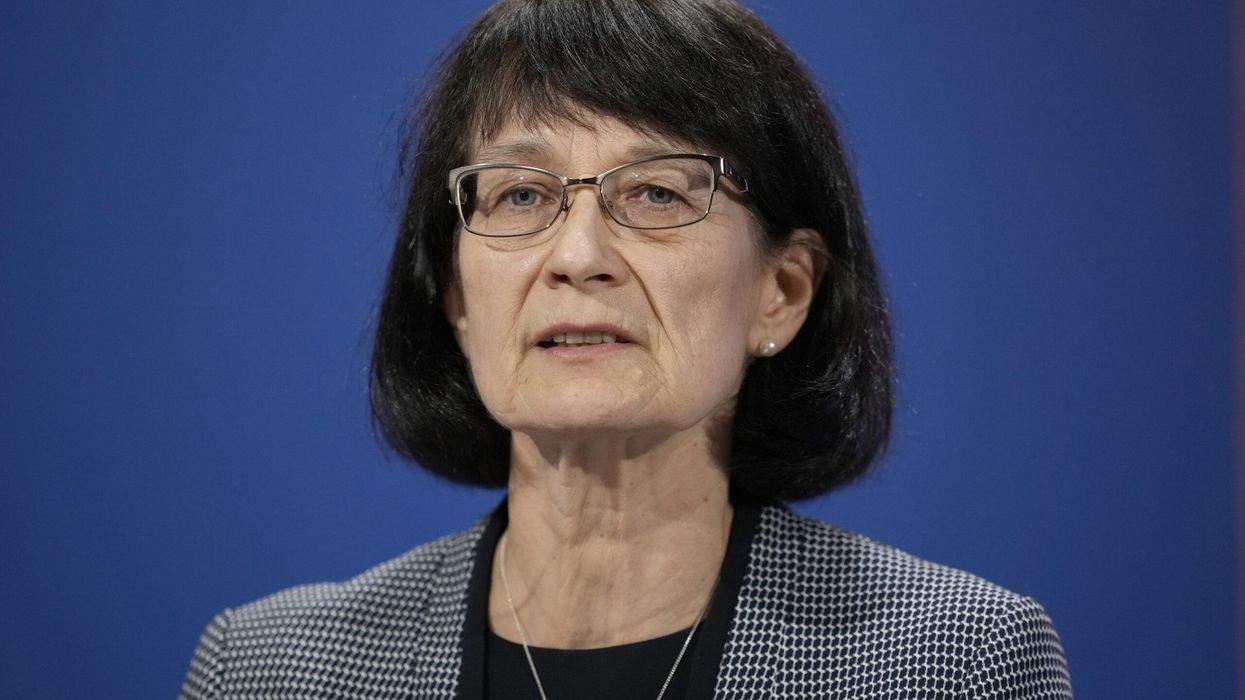THE UK’s public health protection agency last Friday (19) sounded a “national call to action” for more measles jabs for children because of falling vaccination rates and fears that a current outbreak could spread.
Jenny Harries, head of the UK Health Security Agency (UKHSA), warned that measles was spreading among unvaccinated communities. She acknowledged that some in the Muslim community were wary of the vaccines because one that was on offer had a porkbased derivative. But she said she wanted to let people know an alternative was available and was “very effective”.
People have “forgotten what measles is like”, Harries told BBC radio, pointing out that it could even be fatal in rare cases.
The UK had previously achieved “measles elimination status”, she added.
Now, however, the average number of children starting school having had both doses of the combined measles, mumps and rubella (MMR) vaccine stands at only 85 per cent.
Harries said an ongoing outbreak in the West Midlands had seen 216 laboratory-confirmed cases and 103 “likely” cases since October 1, 2023. Of those, 80 per cent of patients were found in Birmingham.
Vaccination rates across the country have been falling, but there are particular concerns about some areas, including parts of London.
The lowest rates nationally were in the capital, with one area – Hackney in the east – having vaccinated only 56.3 per cent of children, according to the latest NHS figures.
Asked which communities were less likely to take up vaccinations, Harries said “for the West Midlands, for those in Muslim communities, they will be not keen to take up one of the MMR vaccines that we offer, which has a pork-based derivative”.
In Bury, cases of measles have risen amid a drop-off of more than 10 per cent in the take up of the MMR vaccine. Eighty-three per cent of children in Bury received both doses of the MMR vaccine by the age of five in 2022-2023, compared to 94 per cent in 2014-2015. While the rate has also dropped regionally and nationally, Bury’s uptake is still below the national average.
Responding to this fall, and to a small number of measles cases, Bury Council worked with NHS partners to deliver 30 catch-up clinics which vaccinated more than 400 people. Further clinics are planned.
Measles is one of the most contagious viruses in the world, but is preventable by two doses of vaccine. It usually starts with cold-like symptoms, followed by a rash a few days later.
Some people may also get small spots in their mouth. The disease can lead to serious problems if it spreads to other parts of the body, such as the lungs or brain. If a woman gets measles while pregnant, it could lead to harm to the baby.
The Covid-19 pandemic massively disrupted routine immunisation efforts worldwide and the bounce back has been slow.
Harries said immediate action was needed to boost uptake of the MMR (measles, mumps and rubella) vaccine in areas where it was low.
“We need a long-term concerted effort to protect individuals and to prevent large measles outbreaks,” she added.
MMR is part of the routine childhood immunisation programme offered by the NHS.
Last year, the UKHSA said in some areas and groups in London, coverage of the first MMR dose at two years of age was as low as 69.5 per cent.
In July last year, the UKHSA warned of a steady rise in measles cases and the risk of a resurgence of the virus, particularly in London where it said an outbreak of 40,000 to 160,000 cases could occur due to low vaccine coverage rates. (Agencies and Local Democracy Reporting Service)





